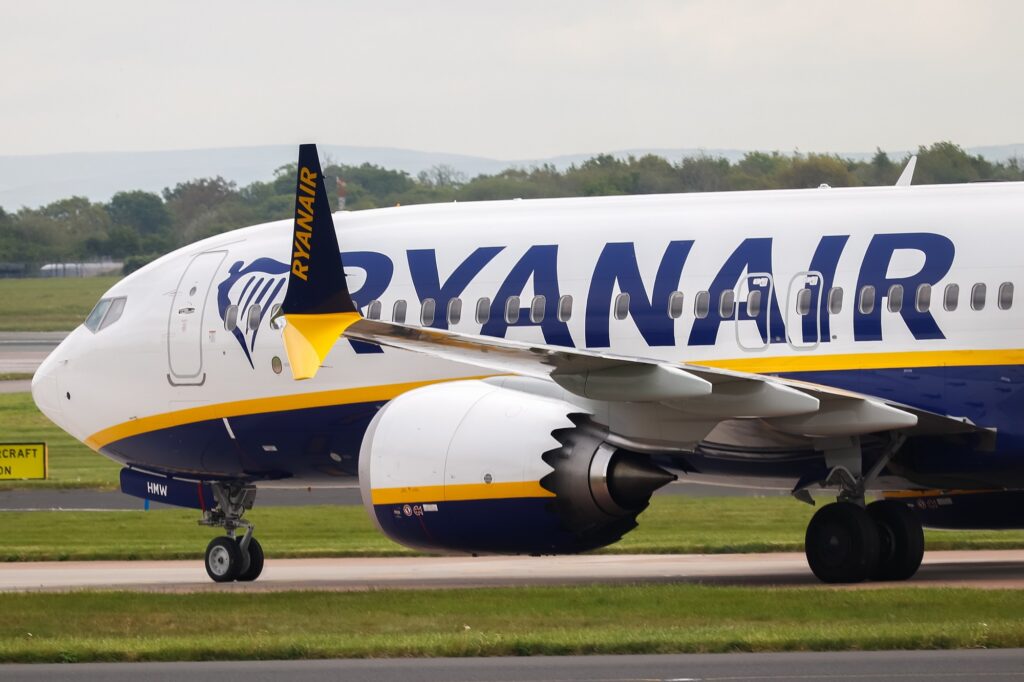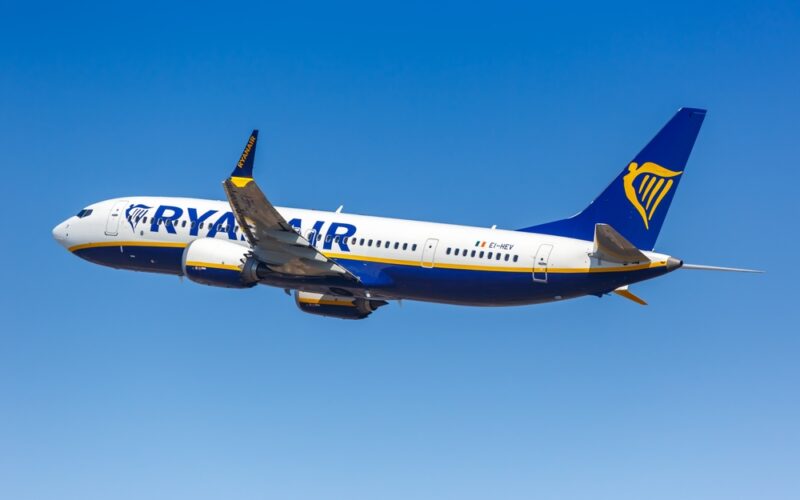Ryanair has announced that it is expecting to receive even fewer new aircraft from US manufacturer Boeing in time for the northern summer season. The airline has said that because of delivery delays at the Seattle-based company, it may be forced to cut passenger flights over the peak travel season.
The Dublin-based low-cost carrier was all set to receive 57 Boeing 737 MAX 8200 planes by the end of April 2024. However, Boeing has since informed the airline that it can now expect to welcome just 50 on those aircraft, although the airline is not ruling out further downward revisions to that number.
“We don’t know how many aircraft we’re going to get from Boeing,” said Michael O’Leary, CEO of Ryanair. “We’re pretty sure we’re going to get 30 to 40. We’re reasonably confident we’re between 40 and 45. And now we are far less confident we’re going to get between 45 and 50.”
With the announcement, Ryanair has become the first European carrier to formally go on record to say that it will be cutting services as a result of ongoing issues at Boeing. The embattled planemaker is currently undergoing a Federal Aviation Administration (FAA) regulatory audit following the Alaska Airlines Boeing 737 MAX 9 incident in January 2024 and has been prohibited from increasing 737 production rates this year as it had planned, as a result.
In a statement issued by Boeing, the company said that it has informed certain airlines that new aircraft deliveries could be delayed while it takes the necessary steps to ensure every aircraft meets all regulatory standards before handover.
“We deeply regret the impact this is having on our valued customer Ryanair,” a spokesperson for Boeing said. “We’re working to address their concerns and taking action on a comprehensive plan to strengthen 737 quality and delivery performance.”

Confirming that delays in the delivery of new aircraft could affect the airline’s summer schedule, O’Leary said that the reduced fleet size will see a cutting of capacity on many routes at what is widely expected to be a bumper summer travel season for airlines.
“If we only get 40, by the end of March we will have to announce some minor schedule cuts,” he said.
Alongside passenger disruption, which will inevitably be caused by schedule cuts, the airline’s overall performance will also take a hit. Ryanair is likely to carry only 200 million passengers for the financial year beginning in April 2024 versus the 205 million previously forecast by analysts. In the previous year, Ryanair carried 183.5 million passengers.
O’Leary has said that some of the costs of delays will have to be passed onto customers, meaning that the average fare will increase by about 5% to 10% during the summer of 2024. This could potentially make Ryanair flights less competitive against those of its rivals. However, other carriers are also experiencing a widescale shortage of aircraft, plus certain airlines such as Wizz Air are also affected by the ongoing engine inspection issues on Airbus A320 family aircraft.
Boeing frustrations
O’Leary has been quick to publicly vent his frustrations with Boeing since the Alaska Airlines incident.
“There’s a sh*tshow going on in Seattle,” O’Leary said. “They keep giving us optimistic, broken promises. And then a week or two weeks later… it turns out that reality is worse.”
On February 21, 2024, a management reshuffle at Boeing saw Ed Clark, the company’s head of its 737 replaced by Katie Ringgold, who was the head of 737 delivery operations.
Meanwhile, Ryanair has said it would consider taking over future delivery slots for 737 MAX 10s should United Airlines drop their orders for the type.
“I’d be delighted to take them as long as we get the right price,” said O’Leary. “It would give us some growth in 2027 or 2028.”

